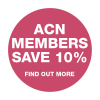This unit aims to advance students’ knowledge and skills in infant and child feeding and nutrition and develop nurses who can support the initiation and maintenance of breastfeeding.
The unit explores breastfeeding and lactation, formula feeding, starting solids, and all other aspects of infant and child nutrition. It investigates international, national, and state policies and best practice recommendations for infant and child nutrition and feeding. Students will build on an undergraduate knowledge of breast anatomy and lactation physiology and apply this to the facilitation of the lactating parent and their family.
The unit will assist students in developing a deeper understanding of the social and cultural complexities of breastfeeding and nutrition and provide insight into the underlying attitudes and values likely to influence feeding and dietary outcomes for the infant, child, and family.
| Infant and Child Nutrition and Feeding | |
| Unit of study code | 201 |
| Availability | Graduate Certificate in Child and Family Health Nursing
Graduate Certificate in Paediatric Nursing Studies GC single unit of study |
| Term | APRIL, OCTOBER |
| Pre-requisite | This unit has no pre-requisites |
| EFTSL | 0.125 FTE |
| Credit points | 6 |
| Mode of study | Online |
| Hours of study | 150 |
| Fee* | Tier 1 |
| Prescribed texts | Nil |
| Co-ordinated by | Trish Lowe MACN e: patricia.lowe@acn.edu.au |
| Content | Intended learning outcomes for this subject/program
After completing this subject, the learner will be able to:- |
Assessment Tasks | ||
| Type of assessment
Note the completed assessment item (e.g. Assessment 1: Online discussion) |
Weighting
(% of total marks) |
When assessed – academic week
(e.g. Week 8) |
||
| Theme 1: Establishing lactation | a) apply advanced knowledge of the anatomy of the mammary gland, infant oral anatomy, and the physiology of lactation to the care of parents and families | Assessment 1: Online discussion | 5% | 2 |
| Theme 2: Maintaining lactation | b) critically reflect on the ethics and benefits of breast or chest feeding and the influences of culture and society on lactation and nutrition | Assessment 2: Essay | 40% | 5 |
| Theme 3: Breastmilk substitutes and infant foods | c) appraise networks, services, guidelines, and resources that support the initiation and maintenance of breast or chest feeding | Assessment 3: Poster and peer review | 20% | 8, 9 |
| Theme 4: Dietary and nutritional issues in early childhood | d) critique the evidence-based literature and best practice guidelines for breast or chest feeding and nutrition to inform clinical practice | Assessment 4: Reflective essay | 35% | 10 |
| e) evaluate a range of infant formula and toddler foods to support parents with the introduction of foods other than human milk | ||||
| f) assess the nutritional requirements of infants and children to formulate strategies that promote healthy dietary choices for the whole family. | ||||
Infant and Child Nutrition and Feeding (201) is a Tier 1 unit.
| Tiers | 2026 Member price (10% discount) | 2026 Non-member price |
|---|---|---|
| Tier 1 | $2,460.60 | $2,734.00 |
| Tier 2 | $2,806.20 | $3,118.00 |
| Tier 3 | $3,623.80 | $4,026.00 |
| Tier 4 | $4,266.00 | $4,740.00 |
| *Graduate certificate / single unit of study fees are reviewed annually and are subject to change without notice | ||
*Fees are subject to change without notice.



